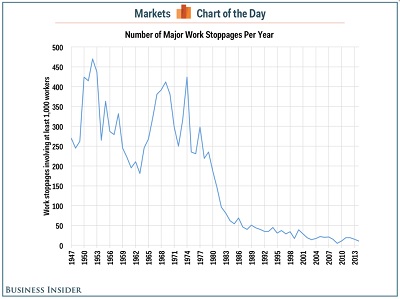The New York Times had an article regarding hiring practices and succession practices at Google, and G*d knows if Google is doing it, it must be important, and we all must try and do the same thing. What I liked about this article was it didn’t necessarily look at practices and processes, it looked at data. The data found that Google, like almost every other large company, does a crappy job hiring and promoting women.
Shocking, I know, if you’re a man! We had no idea this was going on! In America of all places… Beyond the obvious, though, Google was able to dig into the data and find out the whys and make some practical changes that I think most companies can implement, and that I totally agree with. From the article:
“Google’s spreadsheets, for example, showed that some women who applied for jobs did not make it past the phone interview. The reason was that the women did not flaunt their achievements, so interviewers judged them unaccomplished.
Google now asks interviewers to report candidates’ answers in more detail. Google also found that women who turned down job offers had interviewed only with men. Now, a woman interviewing at Google will meet other women during the hiring process.
A result: More women are being hired.”
Here are two selection facts that impact both men and women:
1. We like to surround ourselves with people who we like, which usually means in most cases people who are similar to ourselves.
2. We tend not to want to brag about our accomplishments, but our society has made it more acceptable for men to brag.
This has a major impact to your selection, and most of you are doing nothing about it. It’s very common that if you run simple demographics for your company, ANY COMPANY, you’ll see that the percentage of your female employees does not come close to the percentage of your female leadership.
Why is that?
Here are two things you can do to help make the playing field more level in your organization:
1. Have women interview women. Sounds a bit sexist in a way, but if you want women to get hired into leadership positions you can’t have them going up against males being interviewed by males because the males will almost always feel more comfortable with another male candidate. Reality sucks, buy a helmet.
2. Ask specific questions regarding accomplishments and take detailed notes. Studies have found woman don’t get hired or promoted because they don’t “sell” or brag enough about their accomplishments giving their male counterparts a leg up, because the males making the hiring decisions now have “ammunition” to justify their decision to hire the male.
Let’s face it, Google is doing it, so now we all have to do it. What would we do without best practices…(maybe innovate and create new better practices – but I digress…).

